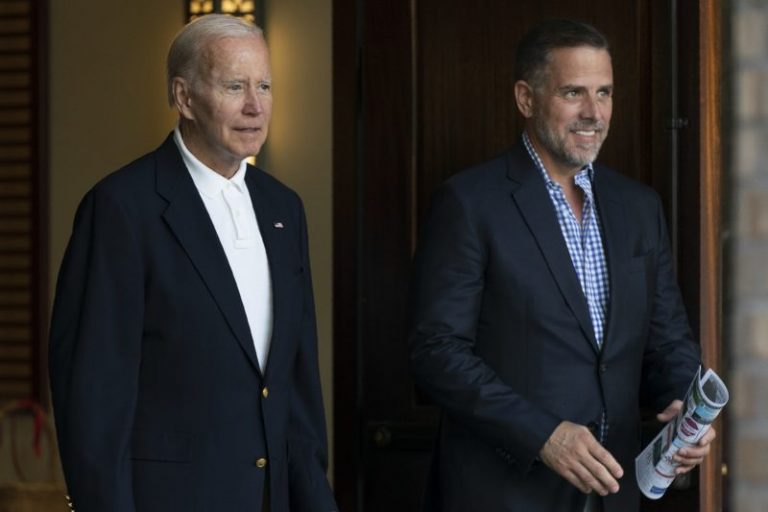Hunter Biden has reached a tentative agreement to plead guilty to two minor tax crimes and admit to the facts of a gun charge, according to court papers filed Tuesday. Here’s what that means and what could happen to the president’s son.
Failure to pay taxes: Biden will plead guilty to failing to pay more than $100,000 in taxes in both 2017 and 2018 after making more than $1.5 million each year. Biden has struggled with debt but has paid the IRS back taxes thanks to a loan from a wealthy friend. Prosecutors recommend probation, potentially up to two years.Lying on a gun purchase: He will also admit to lying on a form for a gun he bought in 2018 by denying he misused drugs — but he will technically not plead guilty. In turn, prosecutors will agree not to prosecute him, but he has to abide by certain conditions to get the charge dropped from his record. It’s a deal called a diversion program that is typically applied to nonviolent offenders with substance use problems. To buy the gun, Biden filled out a federal form asking him if he was “an unlawful user of, or addicted to, marijuana or any depressant, stimulant, narcotic drug, or any other controlled substance.” He checked no, but he’s written a book saying he was addicted to crack cocaine at that time; smoking it as often as “every 15 minutes.”
The president’s son has been under investigation by the Justice Department since 2018, when Donald Trump was in the White House. The investigation has been led by U.S. Attorney David Weiss, who was appointed by Trump as the lead federal prosecutor in Delaware, the Bidens’ home state.
Investigators originally cast a broad net, looking at Hunter Biden’s various overseas business work. But their work eventually narrowed to focus on Biden’s taxes and his gun purchase.
Attorney General Merrick Garland did not remove Weiss as U.S. attorney, even as the Biden administration replaced other Trump appointees with its own picks in most other states. Garland has said he gave Weiss full authority to make charging decisions regarding the Hunter Biden case.
The only comment he made was to acknowledge the investigation in 2020 in a statement: “I take this matter very seriously but I am confident that a professional and objective review of these matters will demonstrate that I handled my affairs legally and appropriately, including with the benefit of professional tax advisors.”
But as the investigation wrapped up, he started taking a more aggressive posture against his critics.
On Tuesday, one of his lawyers, Chris Clark, said in a written statement: “I know Hunter believes it is important to take responsibility for these mistakes he made during a period of turmoil and addiction in his life. He looks forward to continuing his recovery and moving forward.”
Biden’s plea deal means he probably won’t have to go to jail or face a trial, if the judge agrees. But he will have to go to court in Delaware in the coming days to officially plead guilty.
The indictment is still likely to become a major feature of the 2024 presidential campaign. Democrats have made much of the fact that Trump is the first former president to be indicted, and more charges could be coming. And Trump and his allies have frequently cried “What about Hunter?” as they deflected questions about the Trump investigations.
A spokesperson for President Biden said in a statement on Tuesday: “The President and First Lady love their son and support him as he continues to rebuild his life. We will have no further comment.”

